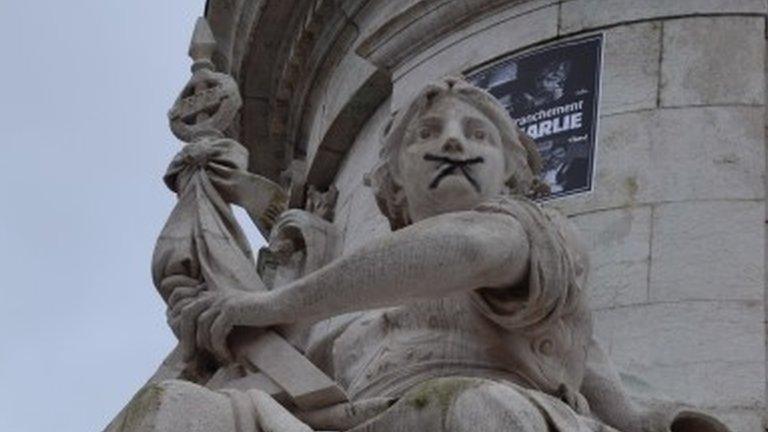Oxford marks Hebdo attack with Voltaire
- Published
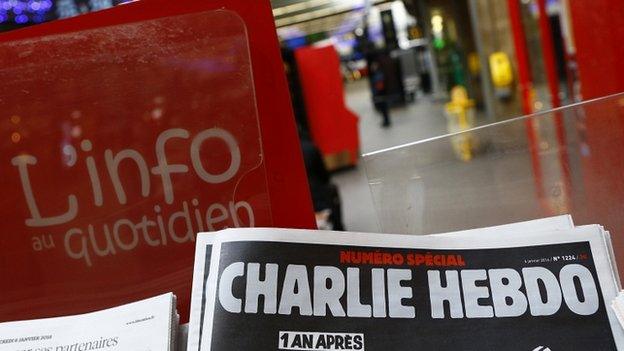
Oxford academics are marking the Charlie Hebdo attack with essays defending free speech
Academics at Oxford University are using Voltaire and other historical defenders of free speech to mark the first anniversary of the Charlie Hebdo attack in Paris.
Lecturers and students have translated essays about free speech and are publishing them as a free e-book.
Caroline Warman, associate professor in French, says she wants the texts to be used in debates about freedom.
She says marchers after the attacks in Paris carried quotes by Voltaire.
Dr Warman has headed a group of more than 100 students and staff at Oxford who have translated quotes and essays by French and other European writers, external.
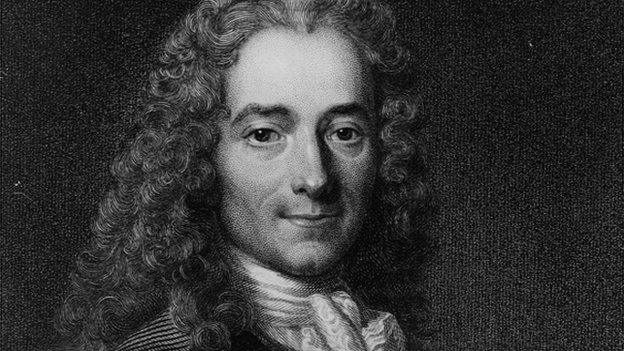
Voltaire's defence of free speech was quoted in the wake of the Charlie Hebdo attacks
It is an intellectual response challenging the ideas behind the "intolerable" attack at the office of the satirical magazine last year, which killed 12 people.
As a riposte to last year's attack by Islamist extremists, French academics produced a collection of essays called Tolerance.
The Oxford academics have produced their own version in English, drawing on 18th Century writers and philosophers.
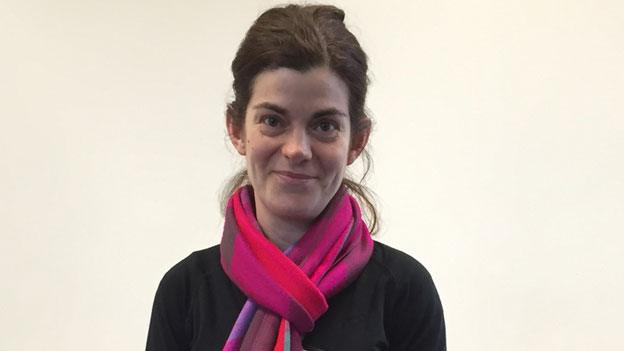
Dr Warman is challenging the "intolerable" attack, with enlightenment ideas
Dr Warman, from Jesus College, Oxford, says Voltaire's "pithy slogans about free speech and religious tolerance" were used after the attacks as a way for people to "reiterate their values and express their grief".
"His face appeared on posters and banners in marches and vigils throughout France."
Dr Warman says that 18th Century authors, writing about persecution, the boundaries of liberty and freedom of expression, have great resonance in the modern era.
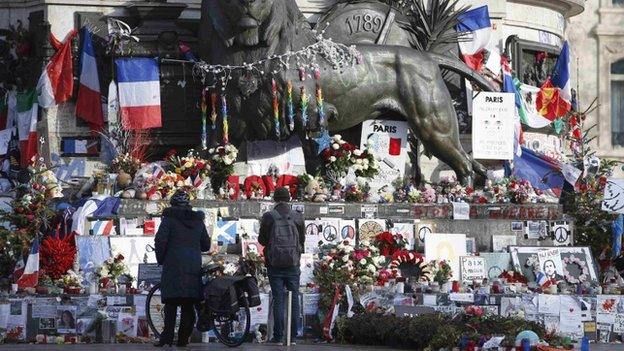
Tributes in Paris marking the anniversary of last year's attack
As well as Voltaire, the collection includes pieces by Diderot, Montesquieu and Rousseau, on topics such as slavery, religious intolerance and the rights of individuals, in essays including Free thinking, Universal Tolerance and the satirical On the horrible danger of reading.
It also includes Italian writer Cesare Beccaria, who said: "Freedom disappears the instant laws make it possible in certain circumstances for man to stop being a person and become a thing."
Dr Warman wants such writers to be brought to a wider public and to use them to debate issues raised by the Charlie Hebdo attacks, such as "What are the limits of free speech? Why is tolerance important? Why is respect for others important? Why is exploitation unacceptable?"
She says these texts can provide a better appreciation of "our European heritage... which can help us understand the problems the world faces today".
- Published14 January 2015
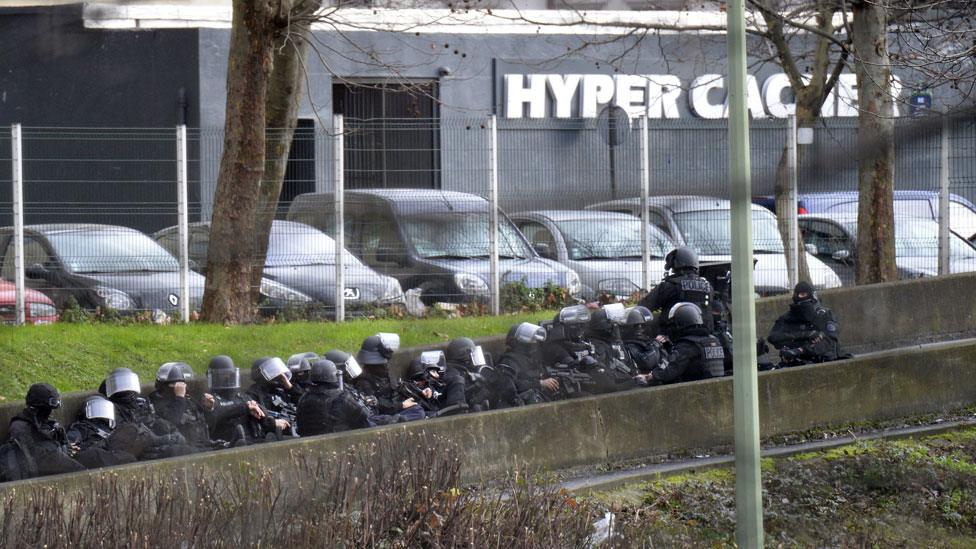
- Published15 January 2015
